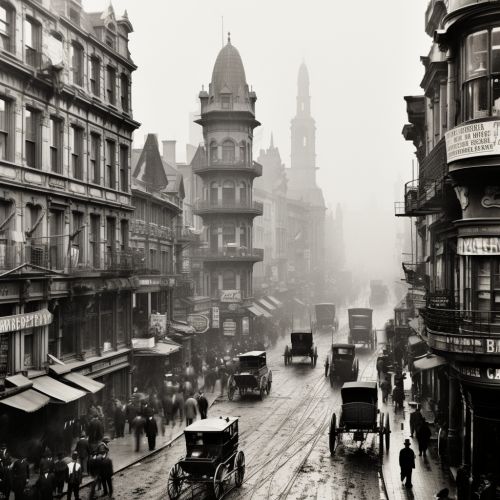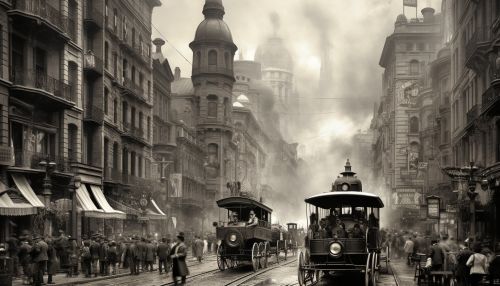Modernism
Origins and Precursors
Modernism, a broad movement that developed in the late 19th and early 20th centuries, had its roots in the Industrial Revolution, which radically changed the Western world's economic and social structure. The rapid urbanization and technological advancements of the era led to a sense of alienation and dislocation, which became central themes in Modernist literature and art.


The precursors of Modernism can be traced back to the Enlightenment and Romanticism. The Enlightenment's emphasis on reason and science challenged traditional religious and social hierarchies, while Romanticism's focus on emotion and the individual paved the way for Modernist explorations of subjective experience.
Literature
Modernist literature is characterized by a radical break from traditional forms and narrative structures. It often features a fragmented plot, stream of consciousness narrative technique, and an unreliable narrator. Prominent Modernist authors include James Joyce, Virginia Woolf, and T.S. Eliot.
Art
Modernist art, like literature, rejected traditional forms and techniques. It sought to capture the complexities of modern life through abstraction, expressionism, and other innovative styles. Notable Modernist artists include Pablo Picasso, Wassily Kandinsky, and Marcel Duchamp.


Architecture
Modernist architecture emerged in the early 20th century as a response to new construction technologies and materials. It is characterized by a rejection of ornamentation, a focus on function, and the use of new materials such as steel, glass, and concrete. Leading figures in Modernist architecture include Le Corbusier, Mies van der Rohe, and Frank Lloyd Wright.
Music
Modernist music broke away from the tonal system that had dominated Western music for centuries. It experimented with new forms, techniques, and musical languages. Key Modernist composers include Igor Stravinsky, Arnold Schoenberg, and Béla Bartók.
Impact and Legacy
Modernism has had a profound impact on all areas of culture and continues to influence contemporary art, literature, music, and architecture. Its emphasis on innovation, experimentation, and the exploration of subjective experience has shaped the way we understand and interpret the world around us.
